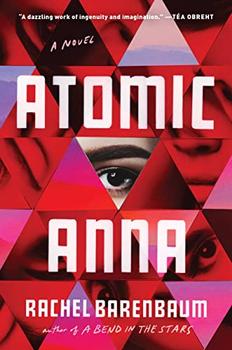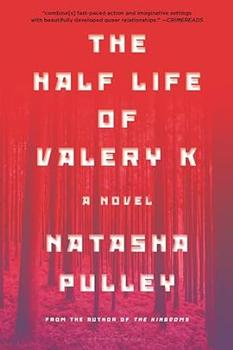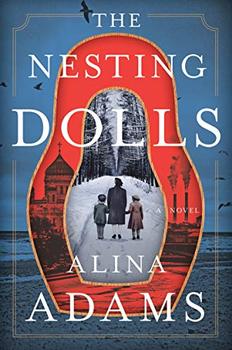Summary | Excerpt | Reading Guide | Reviews | Beyond the book | Read-Alikes | Genres & Themes | Author Bio

If you had the opportunity to prevent one of the world's most horrific disasters, would you? What if saving thousands of lives meant losing your daughter? Such is the premise of Rachel Barenbaum's time travel thriller Atomic Anna. Told through the eyes of Anna, her daughter Molly and her granddaughter Raisa, this story explores not only the implications of time travel but the impact of one person's choices on multiple generations.
Atomic Anna's main focus is how individual choices reverberate through time. Anna, Molly and Raisa are all heavily impacted by the choices of their mothers, and the generally negative outcomes. Anna's mother was arrested for being a political dissident, depriving Anna of a maternal influence. Decades later, when Anna discovers she is pregnant, she fears that becoming a mother will mean the end of her job as the Soviet Union's top nuclear scientist and that she won't know how to be a mother. To readers, it's clear that Anna is suffering from postpartum depression and anxiety; but denied help, Anna makes the brutal choice to give up her daughter, Manya, rather than her position.
Years later, Manya, now going by Molly, struggles to reconcile the secrets surrounding her birth mother, her Soviet and American identities, and her own impending motherhood. A drug addict, Molly is afraid of following in her mother's footsteps and choosing herself over her daughter. Compounding that fear is the pressure from Molly's adoptive parents, who, having immigrated to the United States, have pushed Molly to live their version of the American Dream. Although their strictness stems from a desire for Molly to have a better life than they did in the Soviet Union, it pushes her to rebel, making one bad decision after another until she finds herself in prison and her daughter, Raisa, is put into the foster care system.
However, Molly's choices, as well as the consequences for Raisa, are altered by Anna's actions. Although Anna's goal is to prevent the Chernobyl disaster, she realizes that she needs her family's help to stop the nuclear meltdown, and she thus begins changing Molly and Raisa's timelines. Anna is still putting her work first, but her actions inadvertently improve the lives of her daughter and granddaughter, and she begins to recognize the importance of family and, more significantly, the importance of motherhood. With her final jump through time, Anna must make a choice between saving the lives of thousands of strangers or the lives of those she's come to know and love.
In addition to the family dynamics, Atomic Anna is a book heavily influenced by science, specifically the science of nuclear power, electromagnetism and Einstein's theory of special relativity. These complex topics may put off some readers, but Barenbaum effectively simplifies them and describes their importance as it relates to time travel. Although the pace of the story does occasionally slow as the narrative focuses on the science, it quickly picks up again as that science is put to practical use. And Barenbaum's premise that the Chernobyl disaster could provide the energy necessary to fling someone through time is more plausible than the explanations of many other time travel stories.
Part science fiction thriller, part family drama, Atomic Anna is a unique blend of what's best about these genres. Barenbaum has created three generations of flawed but relatable women who must learn to live with the choices of their mothers and the resulting circumstances. The inclusion of time travel provides an intriguing science element as well as a ticking clock to push the characters to find the solutions to their problems. Readers of science fiction, historical fiction and multigenerational family novels will find themselves captivated by Anna, Molly and Raisa's story.
![]() This review was originally published in The BookBrowse Review in May 2022, and has been updated for the
March 2023 edition.
Click here to go to this issue.
This review was originally published in The BookBrowse Review in May 2022, and has been updated for the
March 2023 edition.
Click here to go to this issue.

If you liked Atomic Anna, try these:

by Natasha Pulley
Published 2024
From the author of The Watchmaker of Filigree Street and The Kingdoms, an epic Cold War novel set in a mysterious town in Soviet Russia.

by Alina Adams
Published 2021
Spanning nearly a century, from 1930s Siberia to contemporary Brighton Beach, a page-turning, epic family saga centering on three generations of women in one Russian Jewish family - each striving to break free of fate and history, each yearning for love and personal fulfillment - and how the consequences of their choices ripple through time.
Your guide toexceptional books
BookBrowse seeks out and recommends the best in contemporary fiction and nonfiction—books that not only engage and entertain but also deepen our understanding of ourselves and the world around us.